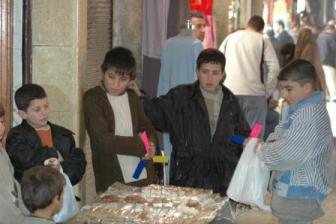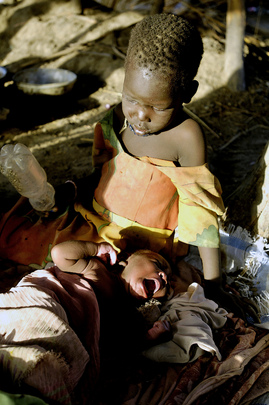Search Results for: Saudi Arabian
10 results out of 492 results found for 'Saudi Arabian'.
SOMALI PIRACY AND THE SPECTRE OF MONEY LAUNDERING
BY PAUL COCHRANE
PIRACY has increased exponentially off the coast of Somalia in recent years, with ships hijacked deep into international waters despite the presence of a multi-national naval task force, and pirates demanding ever higher ransoms from shipping companies. But while the spoils of piracy are evident in coastal Somali towns, tracking down where the remaining millions of dollars disappear to is hard to pin down, with allegations circulating of ransom money entering the real estate markets of Kenya, to money laundering in Yemen and Dubai.…
OIL AND GAS SECTOR STILL LEFT WITH QUESTIONS OVER EMISSIONS REDUCTIONS AFTER COPENHAGEN SUMMIT
BY KEITH NUTHALL, EMMA JACKSON and ERIC LYMAN
THE COPENHAGEN climate change conference ended on December 18 with an accord where key world economies promised to make binding agreements to cut carbon emissions. But detail on exactly how much will be settled at a later date, meaning its long term effects on the oil and gas industry are unclear.…
Middle East faces demographic timebomb
 By Paul Cochrane, in Beirut
By Paul Cochrane, in Beirut
With the end of the summer holidays, children and young people across the Middle East and North Africa (MENA) once again donned uniforms, packed satchels and headed to school, amounting to more than a quarter of the region returning to class.
In Syria, a quarter of the country's population, some 5.3 million people, are enrolled in schools, while 38% of Saudis, 46% of Yemenis, 31% of Jordanians and 31% of Egyptians are below 14 years of age. Altogether, including Iran, half of the MENA's 300 million-plus people are under 24 years old.
While all these kids are in school, there is no pressing socio-economic problem. But over the next decade as students graduate and want to enter the workplace, finding employment for them all will be difficult. Already the Middle East and North Africa have among the highest unemployment rates in the world at 9.4% and 10.3% respectively, according to an International Labour Organisation report.…
The parsimony of rich governments starves the world’s poor
 By Alan Osborn, International News Services
By Alan Osborn, International News Services
Nature has dealt a string of savage blows to the world’s hungry and poor over the past year or so but just when we might have hoped for rich countries and individuals to help out by digging a bit deeper into their pockets, along comes the economic recession. The crunch may or may not have imposed genuine limits on the cash available to alleviate drought and famine but it has certainly given cautious people a wonderful excuse for doing less, especially after the record food aid donations of 2008.
In fact there’s been a succession of crop-destroying droughts, typhoons, floods and earthquakes in Africa and south-east Asia this year at the very time that needs are greater because of the rise in unemployment and the fall in remittances to home countries from nationals working abroad.…
Middle East faces demographic timebomb
By Paul Cochrane
With the end of the summer holidays, children and young people across the Middle East and North Africa (MENA) once again donned uniforms, packed satchels and headed to school, amounting to more than a quarter of the region returning to class.…
EUROPEAN COMMISSION WARNS OF ANTI-RECESSION POLICY TRADE BARRIERS FOR AUTO SECTOR
BY KEITH NUTHALL
A DETAILED European Commission report has listed trade barriers impeding European Union (EU) automobile, parts and components sales imposed to protect export market industries from the recession. Brussels fears that while these restrictions were designed to help vulnerable businesses survive the recession, they could cause long-term damage to Europe’s auto manufacturers.…
IMF PRAISES MID EAST OIL EXPORTERS' RECESSION STRATEGY
BY KEITH NUTHALL
THE INTERNATIONAL Monetary Find has praised anti-recession strategies amongst Middle East and north Africa oil and gas exporting countries. It said using "reserve buffers for countercyclical spending by [Algeria, Bahrain, Iran, Iraq, Kuwait, Libya, Oman, Qatar, Saudi Arabia, Sudan, United Arab Emirates and Yemen] mitigated the impact on their own economies and generated positive spillovers for neighbours."…
YORKSHIRE STILL KING IN THE TRADITIONAL GULF MALE LUXURY CLOTHING MARKET
BY PAUL COCHRANE
IN the Persian Gulf, the traditional dress of the ‘dishdasha’ or ‘thobe’ is still a staple of most men’s wardrobes. In the region’s short, three- to four-month winter the typically white cotton dishdasha is replaced by light wools and cashmere dishdashas, with the season’s trend influenced by the Gulf’s monarchical rulers.…
IFC STEPS IN TO HELP MALDIVES AIRPORT DEVELOP
BY KEITH NUTHALL
THE INTERNATIONAL Finance Corporation (IFC) of the World Bank is to advise on improving the operation of the Maldives’ Malé airport, hoping to attract private investors willing to run the country’s national hub. In a communiqué, the IFC said it would help the government-owned "Maldives Airport Company Limited attract private investors…" It would structure an operating company that could be privatised "and develop a tariff framework and an appropriate investment plan."…
FORENSIC ACCOUNTING BOOMING AS AMERICAN FRAUDS UNCOVERED
BY KASHMIR HILL
TEXAS financier R Allen Stanford built an US$8.5-billion Caribbean banking empire catering to 30,000 customers in 131 countries, but this year Stanford was indicted for swindling those investors in a massive, ongoing fraud. The US government is calling it a Ponzi scheme that defrauded investors of US$7 billion, making it the second largest of the era after Bernie Madoff’s.…